- Elon Musk warns: Apple devices will be banned from their companies if they integrate OpenAI’s AI
- Apple presents iOS 18: all the news and when the new version can be downloaded on the iPhone
- macOS Sequoia: All the changes coming to your Mac and when you’ll be able to download the update
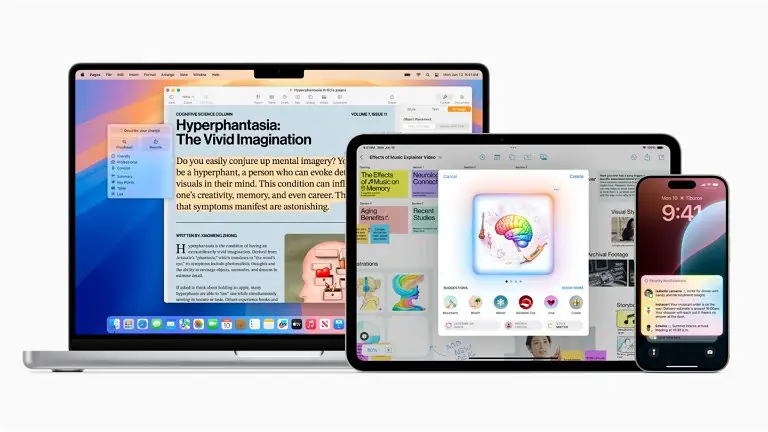
Although Apple seemed to be lagging behind companies such as Microsoft or Google in terms of AI, the Cupertino company has made a move and presented Apple Intelligence at WWDC. This is the name for Apple’s AI language that will be integrated into all supported devices.
Apple has taken its time to make a move, having finished the wait, now it remains to know first-hand the news that lands with Apple Intelligence. The current AI market seems to be dominated by only three companies, the previous two and OpenAI, but this does not seem to matter to the Cupertino company. In fact, it has been seen in the tone of the presentation of this novelty by not making comparisons with other AI systems.
Apple Intelligence: Apple’s AI language is a reality

During the announcement of Apple Intelligence, it was emphasized that this AI is intended to make the user’s life easier, being necessary to be both powerful and intuitive and, of course, private. Tim Cook made it clear that the intentions behind Apple Intelligence are based on achieving a personal experience adapted to the company’s devices.
The first challenge to overcome is privacy, artificial intelligence models work based on a series of data that they have obtained and that, in order to respond to users, they connect to the internet so that they have access to a server where they can perform the processing in order to form a response.
How has Apple solved this situation? Easy, processing is done locally. The models compatible with Apple Intelligence will work within the equipment itself, but this causes another situation to be solved and that is the power necessary to perform this processing.
Apple assures that its devices are capable of coping with this task, although not all of them will be able to do so. The list of devices that support Apple Intelligence is short, but it makes sense that it should be because of everything needed to cope with a large language model.
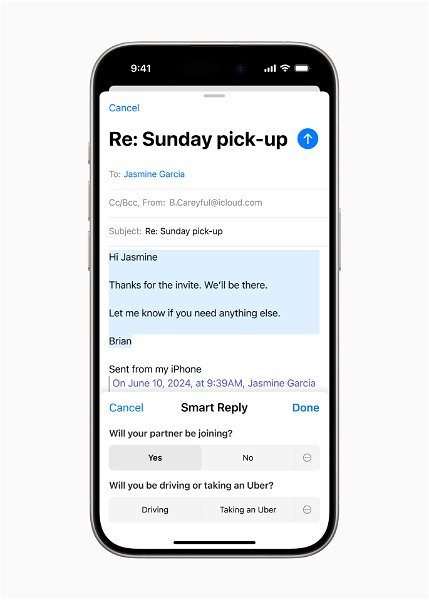

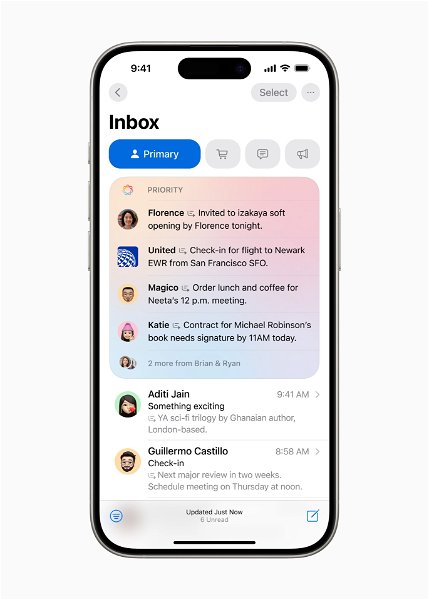
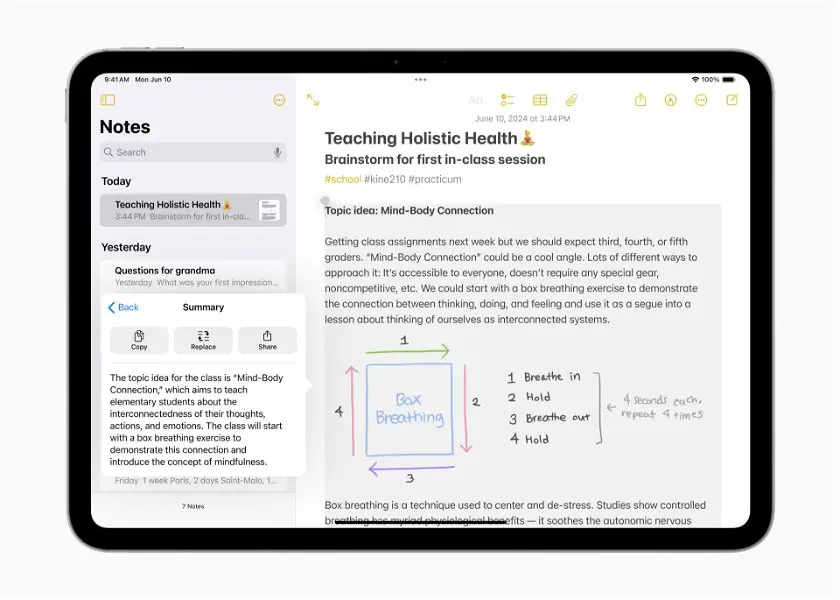
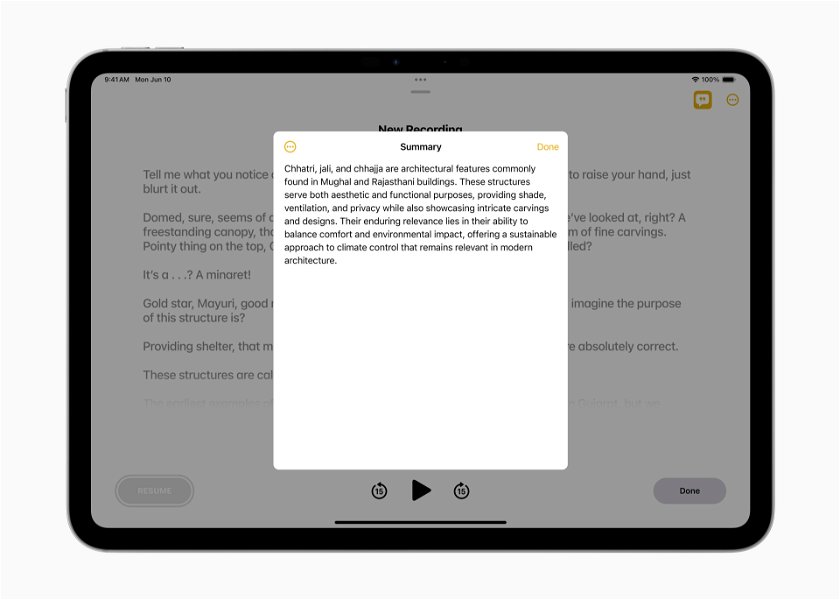
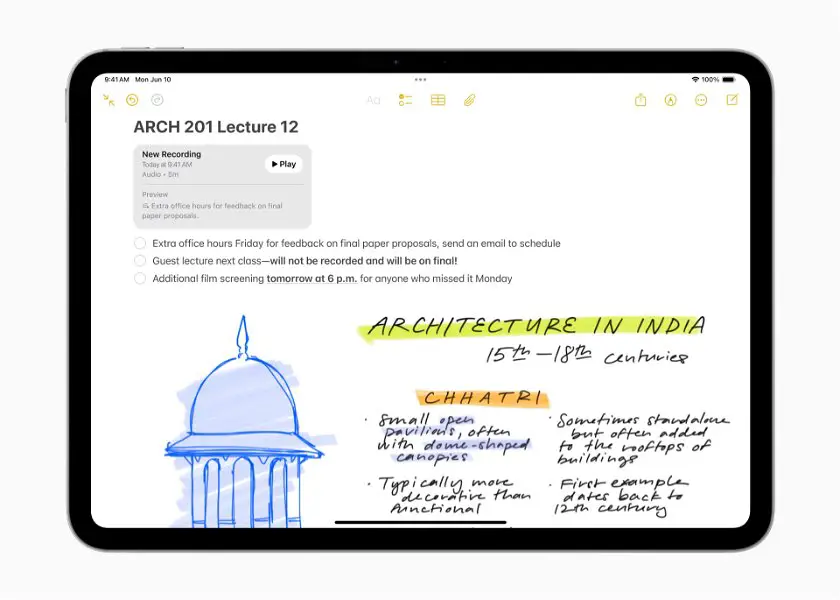
On-premises AI has limitations, Apple knows this well and that is why it is committed to a system that combines both local processing, much more secure and private, with cloud processing, which offers a greater breadth of utilities due to having access to Apple’s processing systems.
Does processing in the cloud make local processing meaningless? No, Apple has developed a system called Private Cloud Computer that is responsible for performing the most complex tasks. But the interesting thing is, according to Apple, that after processing these requests, the data disappears in order to ensure the user’s privacy.
All this explanation gives way to the application of AI within the devices of the Apple ecosystem, being essential to know that what the company is looking for is a routine experience without fuss. Apple wants AI to be just another addition, but something so casual that it doesn’t take effort for the user to adapt to its use.
The list of new features is made up of:
- Rewrite: AI will help rewrite emails, messages, and texts of any kind
- Smart Reply: it will automatically and intelligently answer questions that, for example, are in an email
- Summarize texts: will work for both blocks of text and notifications
- Genmoji: AI-generated emojis that can be created using photographs or descriptive text
- Playground: AI Image Generator
- Image Wand: create images using a doodle made on the iPad, integrates within Notes
- Siri: GPT-4o integration that will offer a much more personal and close experience
The way Apple has presented AI in its ecosystem may be a disappointment to many, but it’s clear that the company isn’t interested in making drastic changes by adding AI. What it seems to be looking for is to make its use as natural as sending a WhatsApp and it may be a really interesting approach.
Apple Intelligence will be available from the summer gradually, landing in the beta versions of iOS 18, iPadOS 18 and macOS Sequoia. Of course, we will have to wait until the fourth quarter of the year to know its stable version. Now that the Cupertino team has made a move, all that remains is to wait and see the response of the competition.

Comments